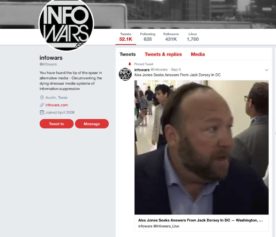In July 2010, Joe McSpedon, a U.S. government official, flew to Barcelona to put the final touches on a secret plan to build a social media project aimed at undermining Cuba’s communist government.
McSpedon and his team of high-tech contractors had come in from Costa Rica and Nicaragua, Washington and Denver. Their mission: to launch a messaging network that could reach hundreds of thousands of Cubans. To hide the network from the Cuban government, they would set up a byzantine system of front companies using a Cayman Islands bank account, and recruit unsuspecting executives who would not be told of the company’s ties to the U.S. government.
McSpedon didn’t work for the CIA. This was a program paid for and run by the U.S. Agency for International Development, best known for overseeing billions of dollars in U.S. humanitarian aid.
According to documents obtained by The Associated Press and multiple interviews with people involved in the project, the plan was to develop a bare-bones “Cuban Twitter,” using cellphone text messaging to evade Cuba’s strict control of information and its stranglehold restrictions over the Internet. In a play on Twitter, it was called ZunZuneo — slang for a Cuban hummingbird’s tweet.
Documents show the U.S. government planned to build a subscriber base through “non-controversial content”: news messages on soccer, music, and hurricane updates. Later when the network reached a critical mass of subscribers, perhaps hundreds of thousands, operators would introduce political content aimed at inspiring Cubans to organize “smart mobs” — mass gatherings called at a moment’s notice that might trigger a Cuban Spring, or, as one USAID document put it, “renegotiate the balance of power between the state and society.”
At its peak, the project drew in more than 40,000 Cubans to share news and exchange opinions. But its subscribers were never aware it was created by the U.S. government, or that American contractors were gathering their private data in the hope that it might be used for political purposes.
The program’s legality is unclear: U.S. law requires that any covert action by a federal agency must have a presidential authorization. Officials at USAID would not say who had approved the program or whether the White House was aware of it. McSpedon, the most senior official named in the documents obtained by the AP, is a mid-level manager who declined to comment.
The Associated Press obtained more than 1,000 pages of documents about the project’s development. The AP independently verified the project’s scope and details in the documents — such as federal contract numbers and names of job candidates — through publicly available databases, government sources and interviews with those directly involved in ZunZuneo.
Taken together, they tell the story of how agents of the U.S. government, working in deep secrecy, became tech entrepreneurs — in Cuba. And it all began with a half a million cellphone numbers obtained from a communist government.
Read the full story at: ap.org


